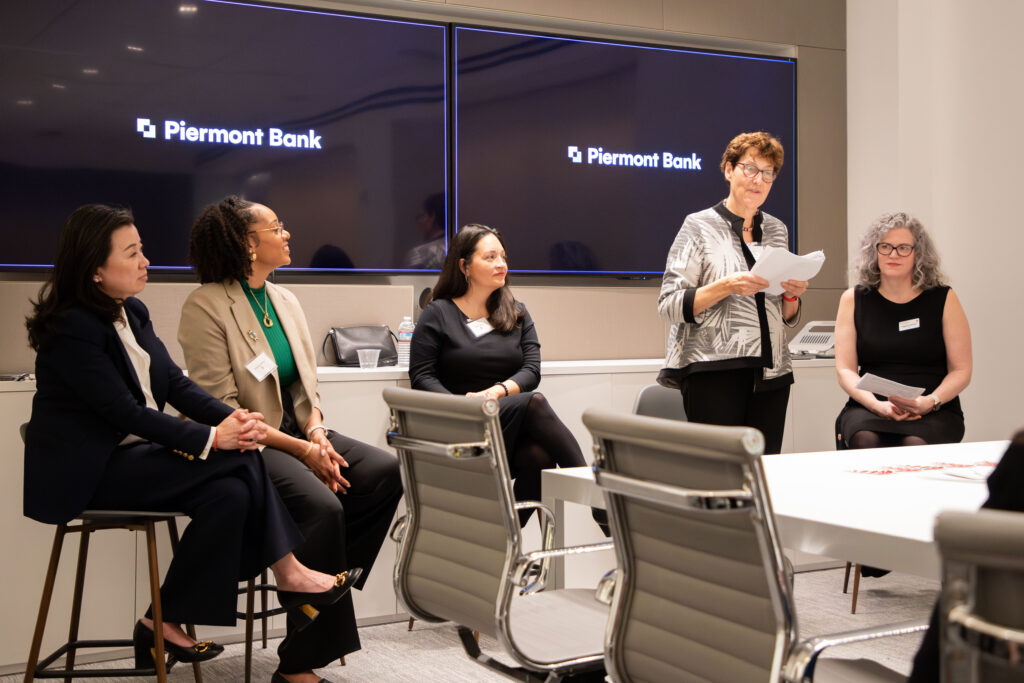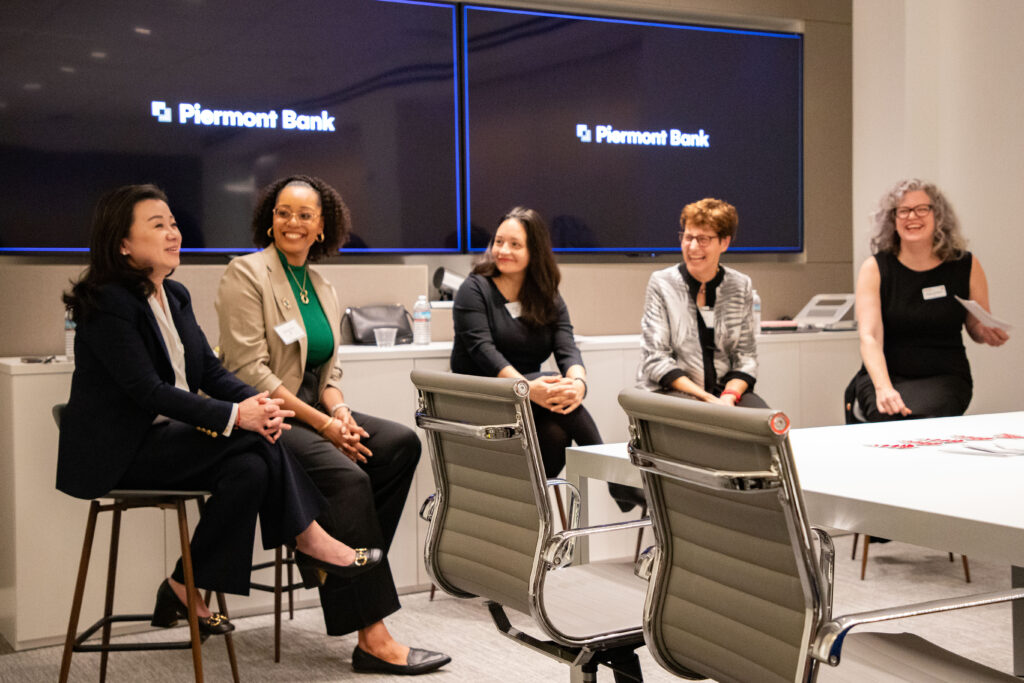On January 24, 2024, Piermont Bank had the pleasure of hosting a panel discussion for Douglass Residential College and Institute of Women’s Leadership.
By the topic of “When Women Lead: An Intergenerational Perspective”, the panel brought together a diverse group of women leaders from Rutger’s alumni including Wendy Cai-Lee, Founder and CEO of Piermont Bank, Princess Belton, M.A., Director of Operations for Women of Color in the Arts, and Kristy Clementina Perez, Ed.D. Director of Percy E. Sutton SEEK Program at Baruch College. This intimate evening touched on how women leaders navigate society, community, and family in a challenging age.

The Come-Up Story as Women Who Lead
The moderator, Meghan Rehbein, Ed.D, Dean of Douglass Residential College, helped contextualize the panel as an address to women across generations. She spoke about how leadership identity development is a big part of what they teach at Douglass. The panelists embody the process of leadership identity development in their coming up stories to becoming female leaders in their respective fields.
Cai-Lee (DC’96), in founding Piermont Bank in 2019, became the first Asian American female founder of an U.S. commercial bank. She discussed the challenges and issues from the status quo in a predominately male industry, particularly when it comes to raising capital. She shared a story of an investor decided to walk away simply after seeing she’s the one in charge. This is why Piermont was founded fundamentally on actualizing a world where women leaders are treated equitably.
Dr. Clementina Perez (DC’01) achieved her role as Director of Percy E. Sutton SEEK Program at Baruch College with the help of good teachers.
“Education is transformation. I’ve always relied on mentorship. And likewise, we have to listen to what young people have to offer because they’re coming in with ideas that really challenge that status quo for women,” she said.
Belton (DRC’11) said that she had the ‘privilege’ of coming up as a woman leader in the Arts industry. At the Apollo Theater, where diversity and women leaders were standard, her growth was more about changing how she saw herself. She began by changing her mindset, asking those around her “How may I help and serve?” That mindset brought her more responsibilities and the esteem that came with that. When people started to tell Belton that she was “managing up” was when she realized she was becoming a leader.

How these Remarkable Women Lead Today
Each of these women has a different approach to managing the day-to-day realities of leadership. Some of Dr. Clementina Perez’s top insights are:
- You’re going to have seasons in life, otherwise known as ups-and-downs. Don’t just accept where you are: recreate, regenerate, attract. Whatever it the season your life is in, do not stop dreaming.
- Making mistakes is natural. We should be honest about this and not ashamed. When you drop the ball sometimes, that’s ok, the only way to manage a team is to be honest with them.
Overall, the responsibility of being in a position of power can be made more difficult by the increased expectations placed on women in those positions. While growing in the arts, Belton found that the expectation of being a “people pleaser” was not helping her be her best, what did help her was:
- Realizing that women leaders today are doing things without a history behind them of others in similar positions. It’s natural to feel fear.
- Being always agreeable is not the answer to that fear. As a “recovering people pleaser,” Belton emphasized the importance of practicing boundaries and saying “no” as a way of reclaiming your value as a leader, which often lies in choosing what is a priority.
With more seniority, the issues of leadership sometimes go beyond the diversity, equity, and inclusion [DEI] aspects. Cai-Lee’s path to leadership came with a few key revelations:
- Cai-Lee realized she was a leader is when she saw that her decisions affect others livelihoods. The position she was in made for no easy choices, often where what’s right for this institution might be bad for certain individuals.
- Grit and resilience are critical to success. Resilience all the way through a lifetime can be tiring, but it must always be in practice.
Whether it comes from women leaders in finance, women leaders in the arts, or women leaders in education the message is the same: believe in your power as a woman to lead. Dr. Rebecca Mark, Ph.D. Director of the Institute for Women’s Leadership, closed the conversation by advising women ‘keep saying [that you’re a leader] and standing in it until you believe it, even if it takes standing in front of the mirror and rehearsing your title many times until you believe it.’
Sharing these remarkable women’s leadership styles comes with the hope of intergenerational guidance for upcoming women leaders.